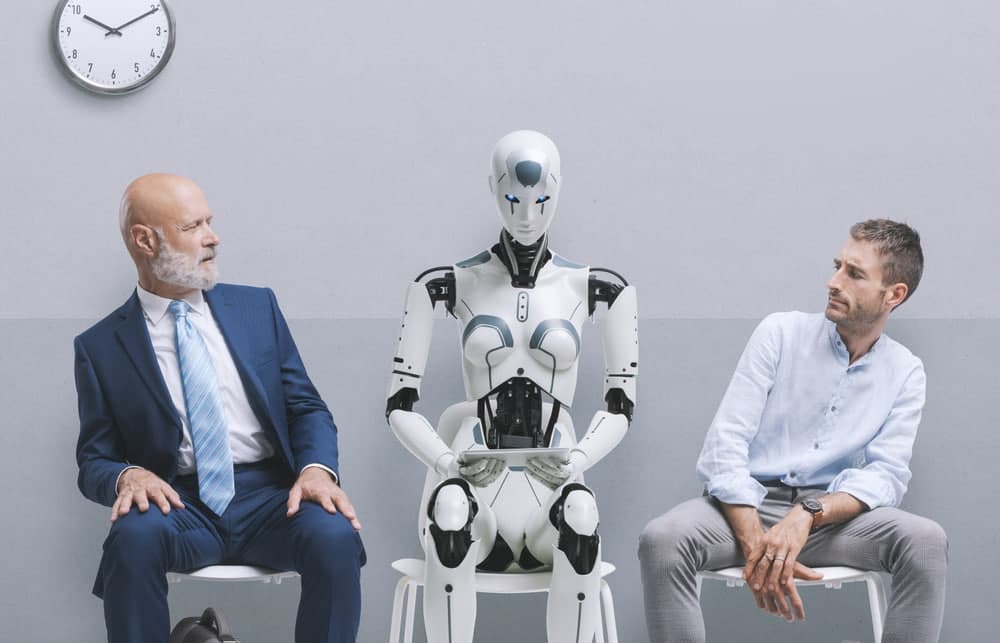“As a society, we are at a learning curve. Universities cannot adapt their curriculum to cover AI and emerging technologies overnight”
At the threshold of a new era characterised by swift technological progress and evolving global dynamics, stakeholders assert that the employment landscape is undergoing a profound transformation, surpassing our wildest expectations.
Emerging technologies, such as artificial intelligence (AI) and blockchain, have already started to shape the jobs of the future, with experts urging the government and the business world to adapt sooner, rather than later.
According to the Cyprus Employers and Industrialists Federation (OEB), surveys conducted over a number of years may not necessarily reflect significant changes in the demand for job titles.
However, there is an increasing number of positions that now necessitate distinct skills and competences dictated by the emerging technologies.
Talking to the Financial Mirror, Marcos Kallis, an Officer in OEB’s Business Development Department, highlighted, “we are in the midst of the ‘Industry 4.0’ era. The working environment and the entire employment ecosystem are undergoing visible transformations right before us.”
Kallis further emphasised that while identifying the specific jobs of the future proves challenging, the evolving landscape will be shaped by emerging technologies and the requisite skillsets demanded by the workplace.
“Digital transformation, green transition and circular economy are becoming obligatory in contemporary entrepreneurship either due to imposed European and international regulations will be dictating future job needs and titles,” he explained.
“There are a number of new technologies which have emerged in recent years and are expected to be integrated in many job positions in the years to follow,” said OEB’s officer.
Professionals in these fields such as in cybersecurity, green jobs, and in health and biotechnology will play a crucial role in developing sustainable solutions for the future.
The widespread adoption of 5G technologies is expected to significantly impact the way we work and the potential that is opening up is unlimited.
“Industries such as augmented reality (AR) and virtual reality (VR) may experience substantial growth in sectors like health, manufacturing and education”.
Robotics in workplace
“The introduction of robotics into the workplace can be integrated in processes, enhance productivity, and handle detailed, repetitive or hazardous tasks,” added OEB’s officer.
As robotic technology advances, the collaboration between humans and robots is likely to become more common, creating a need for skills related to robot programming, maintenance, and human-robot interaction.
Moving on, Kallis said that blockchain is another emerging technology disrupting the job environment of the future.
“Initially, it started off as a mechanism which confirms the security of electronic transactions, but today it has evolved into a revolutionary technology which serves secure, transparent, and decentralised systems,” he continued.
“In the future, it may impact work by transforming how transactions are conducted, reducing fraud, and increasing the efficiency of supply chain management, impacting a number of industries and creating new jobs,” he said.
“Knowledge of blockchain technology will prove even more significant when the Digital Euro is launched in the near future.”
Kallis couldn’t help but mention artificial intelligence (AI), recognising it as the most disruptive technology, impacting all jobs universally.
“The arrival of the revolutionary application Chat-GPT in the past year, proved how powerful this technology is, as it can process huge amounts of data in order to produce text at a very high level on any requested topic,” he commented.
However, as he noted, AI is still at a very early stage and requires very attentive use.
Despite this being the case, professionals will still have to learn how to use AI if they want to remain competitive in the jobs market.
New job roles
“In the future, AI may lead to the creation of new job roles focused on overseeing and collaborating with intelligent systems, emphasising creativity, problem-solving, and complex decision-making skills,” he added.
Adding to the discussion, Dr. Angelos Vouldis, a consultant specialising in business training and career development at Adrakse.com, pointed out the importance of not getting carried away and assuming that AI and emerging technologies are exclusively linked to IT careers.
“We are witnessing another industrial revolution with the emergence of these disruptive technologies, affecting all industries, from a biologist to a content writer,” said Vouldis.
Asked if some jobs will be a thing of the past, Vouldis said, “yes, and that’s only natural. With every technological advancement some older professions die out, and some are born”.
“All jobs will be affected, especially by AI. The question will be, how ready are we to cope with this new work environment that will emerge. How ready will we be to harness the power provided by AI tools,” said the career consultant.
Vouldis continued to compare the emergence of AI tools to the revolution brought on with the introduction of computers.
“Just as people who for whatever reason missed the digital revolution train, remaining computer illiterate, have a severe disadvantage, this will be the case with people who do not get onboard with the new technologies,” he said.
Vouldis, also a study consultant, when asked whether new students should opt to follow an IT-related course, replied that he would advise choosing a career path solely on the acknowledgement that the future will be AI-driven.
“As a society, we are at a learning curve. Universities cannot adapt their curriculum to cover AI and emerging technologies overnight,” he commented.
Start reading
“What I would suggest is for them to go online and start reading and taking courses, attending seminars, anything that would put them on a path of continuous learning,” added Vouldis.
The career consultant continued that the same advice goes for people already in the workforce.
“A constant upgrading and upskilling will be necessary for contemporary employees to remain competitive and relevant,” he said, adding that this is where the business world and education authorities need to step in.
“Businesses should be proactive and offer their staff reskilling and upskilling training courses. School curricula will certainly need to be rethought in the near future too,” added Vouldis.
The career consultant also added that despite that fact that the job market is evolving rapidly with advancements in technology, soft skills will remain relevant in the future.
“A student, or an employee setting off further their studies looking to improve their tech skills, should not leave out working on improving soft skills such as emotional intelligence, team working and project managing skills,” he stressed.
While AI can automate routine tasks and process vast amounts of data, it cannot replace the uniquely human qualities encapsulated by soft skills, argued Vouldis.
“In the majority of roles, soft skills, such as adaptability, team building and management are crucial for individuals thrive in dynamic environments, such as the one we are witnessing with the emergence of these technologies,” concluded Vouldis.










